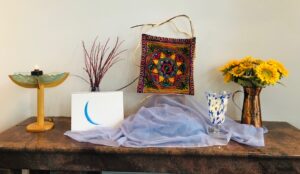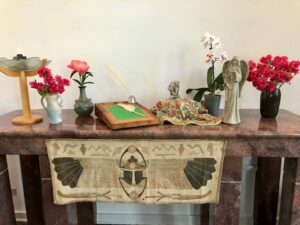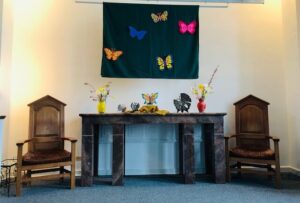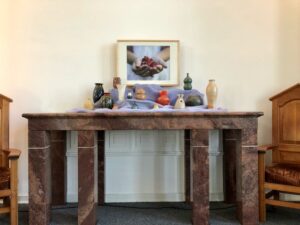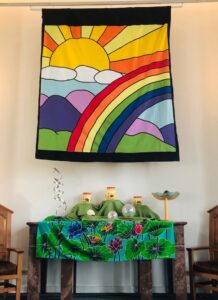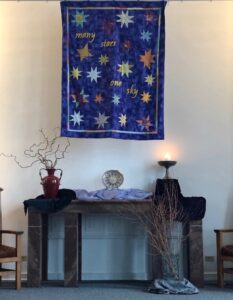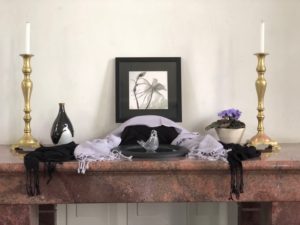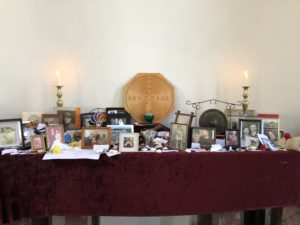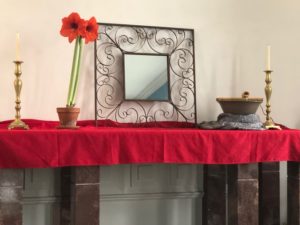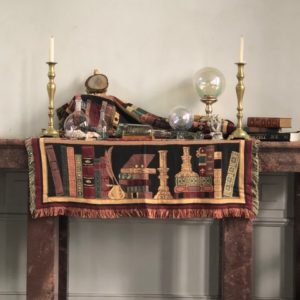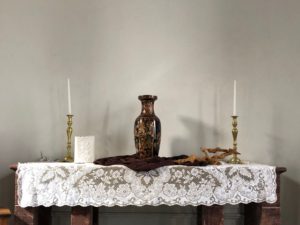Rev. Tim Temerson
As we conclude our monthly services about the theme of Belonging, today’s service will imagine what a world of belonging might look and feel like and ask what role religious communities like the UU Congregation of Charlottesville can and must play in building such a world.
ORDER OF SERVICE
The church is only the church when it exists for others.” Dietrich Bonhoeffer
Prelude Offered by Scott Deveaux
Welcome Debby Norton, Worship Weaver and
Steve Brecker, Member of the UUCville Board
Call to Worship Words by Kirk Loadman-Campbell
Hymn “We Rise” Batya Levine
Chalice Lighting
Sharing the Flame
Hymn “As We Leave This Friendly Place”
Centering and Sharing
Offertory Offered by Scott Deveaux
Reading “Reversing the Question” Dr. Martin Luther King Jr.
Sermon “A World of Belonging” Rev. Tim Temerson
Closing Hymn #1018 Come and Go WithMe Arr. Kenny Smith
Benediction and Chalice Extinguishing Words by Audre Lorde
Postlude Offered by Scott Deveaux
TEXT OF SERMON
REV. Tim Temerson
Good morning, again, and what a joy and a privilege it is to be with you today as we conclude our month of services about the theme of belonging. I’m also delighted to share that recording of a small but powerful portion of Dr. King’s “I’ve Been to the Mountaintop” speech, delivered in Memphis, Tennessee the night before he was assassinated. I’ll have much more to say about Dr. King’s Profound re-telling of the Parable of the Good Samaritan and why it calls all of us to build a world of love, justice, and belonging for the whole human family.
Before I do that, let me begin by reiterating a couple of items Debby mentioned in the announcements. First, I do hope that anyone who is relatively new to Unitarian Universalism or to this congregation will join us at 12:15 under the pergola for the newcomer circle. The circle only lasts for 30 minutes and I’ll be there to talk about Unitarian Universalism and to answer any questions you may have.
I also want to mention the great time I had last Sunday at Charlottesville Pride. I was so moved and inspired by all the volunteers from our congregation who turned out to express their love and solidarity with the Queer and Trans community. I met a number of wonderful people who stopped by our UUCville table and had fun sharing some of our “Good News.” I was also pleased to see a few other progressive religious communities at Pride, although I’m sorry to say that for every faith community that welcomes Queer and Trans people and turns out for an event like Charlottesville Pride, the majority of religious communities are not so welcoming and do not attend events like Pride.
The exclusion found in so many religious traditions extends well beyond the realm of organized religion. Think for a moment about the many ways humankind is divided into the privileged and the marginalized, rich and poor, the powerful and the powerless, saved and condemned, friend and enemy. As optimistic and hopeful as I try to be, it cannot be denied that love, justice, and peace have been, and still are, the exception rather than rule.
And, I’m sorry to say, our world shows little sign of moving in a more just and peaceful direction. African Americans, and especially unarmed black men, continue to be killed and brutalized by police violence. The reproductive rights of women are in serious jeopardy and, in some cases, have already been eliminated. Discrimination against the Queer community is rising and the lives of transgender children and youth are being put harm’s way right here in Virginia. Migrants are being scapegoated by hateful politicians and treated as political pawns. Low-income families are facing a rising tide of evictions and food insecurity. Our democratic institutions are under assault by forces rooted in racism, white supremacy, and violence. And our climate is getting hotter and hotter and on what seems like a daily basis as we see the consequences of generations of greed and exploitation.
Now that I’ve got you feeling really good and hopeful about the future, let me simply say that at the root of all these many problems – ranging from the religious communities that continue to exclude to the political extremists who openly embrace hate and violence – at the root of all these problems is the simple fact that for much of human history, we as a species have been unwilling and unable to put the idea that all people are the children of God, that all people have dignity and worth, and that all people are precious and deserving of love and compassion – we have been unable and unwilling to put that idea and that value at the center of our lives and of human history. To put it another way, the human family has never truly lived as if we are one family in which each and every person is cherished, respected, and treated as if they belong.
And I must say that while it would take far too long to explore why humankind has failed to put love and compassion at the center of human history, I feel religion shoulders a good bit of the blame. More often than not, religion divides, judges, and excludes rather than celebrating and affirming the beauty and blessedness of all. And, in doing so, religion reinforces and offers moral cover for the very worst in human nature and human institutions rather than challenging an unjust status quo and calling humankind back to our best selves, our compassionate selves, our justice-seeking selves, our loving selves. Calling us back to who we are and who we ought to be is, in my view, what religion at its best is supposed to do.
And that brings me back to Dr. King’s retelling of the Parable of the Good Samaritan. As I said before, I have come back to this portion of his speech over and over again because it captures in a compelling and inspiring way how humankind is supposed to live and journey together. As Dr. King makes clear, human beings are called to be other-centered, rather than self-centered, compassionate rather than indifferent, and expressing love and care for our neighbors rather than hating them or remaining silent in the face of their suffering. That is the essence of what it means to “reverse the question.” Rather than asking what will happen to me if I help someone, get involved, or take a risk for justice, we are called to be concerned about the welfare of our neighbors by asking what will happen to them if we don’t stop to help, don’t take action against a system that perpetuates racism or that puts trans kids at risk, and don’t stop to offer the shelter of love and belonging.
And there’s something else that I especially appreciate about Dr. King’s message. Near the beginning of the Parable, after the two religious officials ignore the man who has been robbed and thrown in a ditch, Dr. King points out that a Samaritan, a person from “another race” stops to help the man in need. For those who may not be familiar with the history of the land of Israel, Samaritans were outsiders, reviled and rejected by society. And yet, the Good Samaritan ignored the boundaries that he was not supposed to cross in order to help a person in need – a person who also happened to be part of the community that reviled him.
The reason Dr. King took time to point out the boundary crossing compassion of the Samaritan was to reinforce Jesus’s radical answer to a question that preceded his telling of the parable. After being asked what one had to do to attain eternal life, Jesus responded by repeating what is known as the great commandment, which is to love God with all your heart and your neighbor as yourself. But then Jesus is asked a follow-up question – a question that I feel is the most important question in all of religious life and a question at the heart of Unitarian Universalism. And the question was simply, “But, rabbi, who is my neighbor?” And in responding with the Parable of the Good Samaritan, Jesus is telling us and Dr. King is reiterating that our neighbor is everybody, everyone, every person in the human family. Our neighbors are not simply our friends or those with whom we agree. Our neighbors are not just fellow Unitarian Universalists or people who share our religion or our beliefs. Our neighbors are not just those who live in our communities, in our state, or in our country. Our neighbors are not just people with whom we share a culture, a history, or a language. Our neighbors are not just those who share our skin tone, our gender identification, or our sexual orientation. Friends, the message at the heart of Jesus’s parable and Dr. King’s interpretation is that we are required to reverse the question with everyone, with all people. Every person is my neighbor, everyone is my concern, everyone is deserving of my love, my respect, and my compassion.
Now, I say Dr. King’s message and the question he answers is at the heart of Unitarian Universalism simply because our tradition at its best has affirmed an ethic of reversing the question since its founding over 500 years ago. Our core values and principles are rooted in our belief in the underlying unity and connectedness of humankind and in the transforming power of love – a love that is universal, boundless, and unconditional. Those were the core theological assumptions guiding our Unitarian and Universalist forebearers and although our theological language has evolved, we affirm the dignity and worth of all people, we affirm justice, equity, and compassion in all human relations, and we affirm the goal of world community with peace, liberty, and justice for all.
Now, I’m the first to acknowledge that our principles, ideals, and good intentions have not always been matched by our actions and we Unitarian Universalists have a long way to go in living into the fullness of our faith. We have not done enough justice, we have not loved our neighbor sufficiently, and we have not reached far enough beyond the safety of our congregations to, in Dr. King’s words, tear down gigantic mountains of evil.
While we haven’t done enough and have a great deal of work ahead of us, we Unitarian Universalists have made a positive difference. Think about the Unitarian and Universalists who took courageous stands against slavery, on behalf of women’s suffrage, and against the death penalty. Think about Martha and Waitstill Sharp, two Unitarians who answered a call to help refugees escape Nazi tyrannny and genocide. And think about the UUs who marched alongside Dr. King in Selma, who protested against the Vietnam War and the nuclear arms race, and who are proclaiming that Black Lives Matter.
And I want to say a word about the courageous actions taken recently by this congregation for which you should be proud and which speak so well of the journey you are making. When I was applying to be your developmental minister and learning more about you, I read about the decision you made to change your name from the Thomas Jefferson Memorial Church to the UU Congregation of Charlottesville. I know that decision was not easy and led to some feelings of loss. But I think changing your name says something powerful about how you are choosing to live Unitarian Universalism. I am so proud of you for making that choice and I feel you have set our congregation on a path to live into the fullness of Unitarian Universalist values and principles. Well done, UU Congregation of Charlottesville, well done!
Let me simply conclude by saying that I believe we are poised for great things and our future is bright. Through your words and your deeds, the UU Congregation of Charlottesville is opening the doors of this sanctuary wider and wider and you are reversing the question every time you offer your love and compassion to those who are hurting, every time you act to dismantle racism and white supremacy, and every time you widen the circle of love and belonging. As we make this journey together, I can’t wait to see how we will build on the good work you are already doing. Just imagine, just imagine the justice we can create, the love we can share, and the souls we can welcome into this beloved community. Together, we can help build a better world and help our community and this world become a place filled with freedom, justice, and whole lotta singin!

